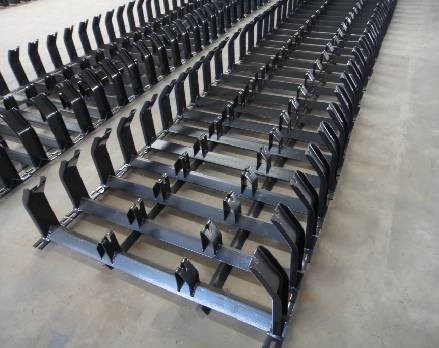 Afrikaans
Afrikaans  Albanian
Albanian  Amharic
Amharic  Arabic
Arabic  Armenian
Armenian  Azerbaijani
Azerbaijani  Basque
Basque  Belarusian
Belarusian  Bengali
Bengali  Bosnian
Bosnian  Bulgarian
Bulgarian  Catalan
Catalan  Cebuano
Cebuano  Corsican
Corsican  Croatian
Croatian  Czech
Czech  Danish
Danish  Dutch
Dutch  English
English  Esperanto
Esperanto  Estonian
Estonian  Finnish
Finnish  French
French  Frisian
Frisian  Galician
Galician  Georgian
Georgian  German
German  Greek
Greek  Gujarati
Gujarati  Haitian Creole
Haitian Creole  hausa
hausa  hawaiian
hawaiian  Hebrew
Hebrew  Hindi
Hindi  Miao
Miao  Hungarian
Hungarian  Icelandic
Icelandic  igbo
igbo  Indonesian
Indonesian  irish
irish  Italian
Italian  Japanese
Japanese  Javanese
Javanese  Kannada
Kannada  kazakh
kazakh  Khmer
Khmer  Rwandese
Rwandese  Korean
Korean  Kurdish
Kurdish  Kyrgyz
Kyrgyz  Lao
Lao  Latin
Latin  Latvian
Latvian  Lithuanian
Lithuanian  Luxembourgish
Luxembourgish  Macedonian
Macedonian  Malgashi
Malgashi  Malay
Malay  Malayalam
Malayalam  Maltese
Maltese  Maori
Maori  Marathi
Marathi  Mongolian
Mongolian  Myanmar
Myanmar  Nepali
Nepali  Norwegian
Norwegian  Norwegian
Norwegian  Occitan
Occitan  Pashto
Pashto  Persian
Persian  Polish
Polish  Portuguese
Portuguese  Punjabi
Punjabi  Romanian
Romanian  Russian
Russian  Samoan
Samoan  Scottish Gaelic
Scottish Gaelic  Serbian
Serbian  Sesotho
Sesotho  Shona
Shona  Sindhi
Sindhi  Sinhala
Sinhala  Slovak
Slovak  Slovenian
Slovenian  Somali
Somali  Spanish
Spanish  Sundanese
Sundanese  Swahili
Swahili  Swedish
Swedish  Tagalog
Tagalog  Tajik
Tajik  Tamil
Tamil  Tatar
Tatar  Telugu
Telugu  Thai
Thai  Turkish
Turkish  Turkmen
Turkmen  Ukrainian
Ukrainian  Urdu
Urdu  Uighur
Uighur  Uzbek
Uzbek  Vietnamese
Vietnamese  Welsh
Welsh  Bantu
Bantu  Yiddish
Yiddish  Yoruba
Yoruba  Zulu
Zulu industrial urethane rollers
Understanding Industrial Urethane Rollers Applications, Benefits, and Considerations
Industrial urethane rollers are an essential component in various manufacturing and production processes across multiple industries. These rollers, made from polyurethane (a versatile polymer known for its resilience and durability), offer a unique combination of properties that make them suitable for a wide range of applications. In this article, we will explore the characteristics, advantages, and typical applications of industrial urethane rollers.
What Are Urethane Rollers?
Urethane rollers are cylindrical components used in machinery to facilitate movement and transport materials. Unlike traditional rubber rollers, urethane rollers are engineered to endure harsher conditions, offering superior resistance to wear and tear. The manufacturing process begins with pouring liquid urethane into molds, which can be customized to create rollers of various shapes and sizes. After curing, these rollers exhibit exceptional strength, elasticity, and flexibility.
Key Benefits of Urethane Rollers
1. Durability and Wear Resistance Urethane is renowned for its durability. It can withstand abrasion, impact, and extreme conditions, making urethane rollers exceptionally long-lasting. This attribute reduces the need for frequent replacements, ultimately leading to cost savings in industrial settings.
2. Chemical Resistance Urethane rollers can resist many chemicals, oils, and solvents that could otherwise degrade materials like rubber. This makes them ideal for industries such as food processing, pharmaceuticals, and chemical manufacturing, where exposure to harsh substances is common.
3. Noise Reduction Urethane rollers operate quietly compared to metal or harder materials. This feature is beneficial in environments where noise reduction is a priority, contributing to a safer and more pleasant workspace.
4. Customizable Hardness Urethane rollers can be formulated in various hardness levels, measured on the Shore A scale. This flexibility allows manufacturers to tailor the roller's properties to specific applications, striking the right balance between grip and flexibility.
5. Reduced Maintenance Due to their durable nature and resistance to wear, urethane rollers require less maintenance compared to other types. This aspect enhances operational efficiency and minimizes downtime in production lines.
Common Applications of Urethane Rollers
industrial urethane rollers

1. Conveyor Systems Urethane rollers are frequently used in conveyor systems to transport materials seamlessly. Their smooth surface helps reduce friction and facilitates efficient movement, which is crucial in warehouses and distribution centers.
2. Printing Industry In printing applications, urethane rollers are used to deliver ink evenly onto substrates. Their chemical resistance ensures that they remain effective and do not deteriorate when exposed to inks and solvents.
3. Packaging Machinery Urethane rollers play a vital role in packaging machines, where they ensure consistent movement of products through various stages of packaging. The durability of urethane ensures that these rollers can handle the stress of continuous operation.
4. Food Processing Given their resistance to bacteria and chemical agents, urethane rollers are particularly suited for the food industry, where hygiene and safety are paramount. They ensure that food products are handled safely without contamination.
5. Textile and Woodworking Industries In textile manufacturing and woodworking applications, urethane rollers provide essential support for transporting materials without causing damage, thanks to their softness and adaptability.
Considerations Before Choosing Urethane Rollers
While urethane rollers offer numerous advantages, it is essential to consider a few factors when selecting them for specific applications
- Load Capacity Ensure that the chosen rollers can support the required weight for your application without compromising their integrity. - Environmental Conditions Consider the temperature and exposure to any chemicals or substances that could affect the performance of the urethane. - Cost vs. Benefit While urethane rollers may have a higher upfront cost compared to rubber alternatives, their longevity and reduced upkeep can lead to significant overall savings.
Conclusion
Industrial urethane rollers are a versatile and effective solution for various manufacturing and transport needs. Their combination of durability, chemical resistance, and customization options makes them an attractive choice for businesses aiming to enhance their operational efficiency. By understanding the key benefits and applications, manufacturers can make informed decisions when it comes to investing in urethane rollers, ultimately leading to improved productivity and reduced costs in the long run.
-
Revolutionizing Conveyor Reliability with Advanced Rubber Lagging PulleysNewsJul.22,2025
-
Powering Precision and Durability with Expert Manufacturers of Conveyor ComponentsNewsJul.22,2025
-
Optimizing Conveyor Systems with Advanced Conveyor AccessoriesNewsJul.22,2025
-
Maximize Conveyor Efficiency with Quality Conveyor Idler PulleysNewsJul.22,2025
-
Future-Proof Your Conveyor System with High-Performance Polyurethane RollerNewsJul.22,2025
-
Driving Efficiency Forward with Quality Idlers and RollersNewsJul.22,2025





























